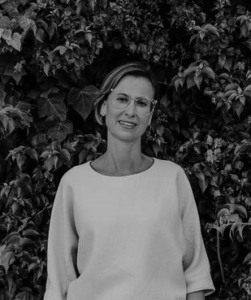Mentoring with a gender perspective: Mentoring to women who suffer from gender violence

WORKSHOP LED BY LORES LÓPEZ
Lores López is a lawyer specialized in gender violence and equality. She has developed a good part of her professional career giving legal advice to battered women as well as to their children in a public center of the Generalitat de Catalunya. The need to implement community actions with a social impact in terms of gender and prevention of sexist violence has allowed her to participate in the design, development, implementation and monitoring of local and supra-local programs in this area. She has also participated in the drafting and revision of local protocols for the integral approach against sexist violence in the region as well as in municipal circuits of sexist violence for more than a decade.
She is knowledgeable about women’s rights, their uniqueness and the challenges of working for the eradication of sexist violence and the achievement of effective equality between women and men. Having participated in meetings at a local, national and international level has given her a panoramic view of the most common issues in the field of violence and women’s rights, as well as the multiple approaches to combat them.
Upon her return to Barcelona in September 2016, she decided to explore ways to co-create a Social Mentoring program with a Gender Perspective convinced that it is necessary to complement current assistance programs with community projects that involve society and promote their participation.
Between 2014 and 2016 she set my residence in Denmark and got in touch with mentoring with a gender perspective. Apart from her collaboration with organizations specialized in the attention to battered women in Copenhagen, Danske Kvindesamfund, and refugee women, Trampolin Huset, She got in touch with Mentoring at KVINFO (Danish Center for research on gender, equality and diversity) and, most especially, with its Mentornetvaerk core program
ABSTRACT
Current legislative framework on gender-based violence in Catalonia and the specialised care system are one of our country’s greatest successes in recent years. Institutions have now professionalised teams giving attention to women. These intervene from a very in-depth knowledge of violence and its multiple approaches and effects. This is much needed and a great success resulting from a collective effort. However, a deep analysis of strengths and needs must be done after these years.
The ideas that something else is needed to accompany women in their processes and that there is a certain fatigue of the model transcend in forums at national and international level. Voices have risen and consider that a model based on verticality (professional – user) and financial aid is insufficient. In addition, professionals notice that effective interventions cannot be made if they do not incorporate elements that adapt the model to the person and not only the person to the model. Furthermore, many women who address themselves to these network services and shelters (now survivors of violence) unlink from them when concluding their processes. Only few women are consulted about their wish to reintegrate some of the aid and the experience acquired. This is a loss and something that professionals constantly detect.
With the aim to improve prevention and eradication of sexist violence, we set out to explore new ways of social intervention that coexist with the strongly consolidated current structure and that provide a plus of quality and individualization to the programs. The idea is to extend accompanying programs to women in situations of sexist violence using the mentoring structure and to offer qualified support to unique and especially complex cases. These women will be assigned a mentor. Mentors can be either survivors of gender violence or women with gender sensitivity. These cross-cutting and easily implementable programmes can be incorporated into municipal social services teams, offices specializing in women’s care, non-governmental organizations, women’s associations working groups, victims care offices, and other such organizations.
